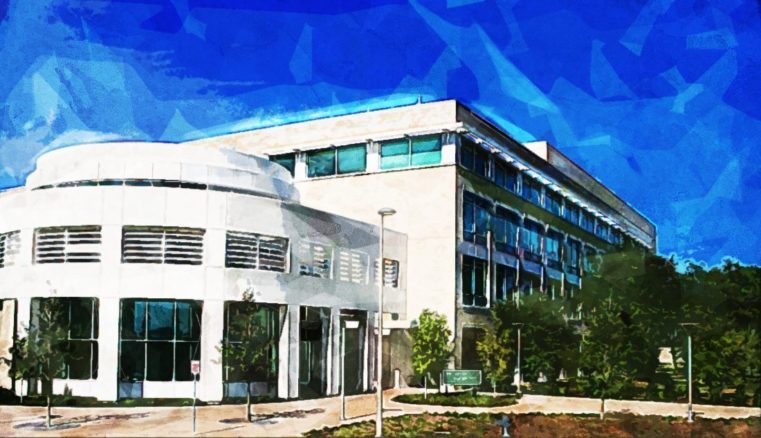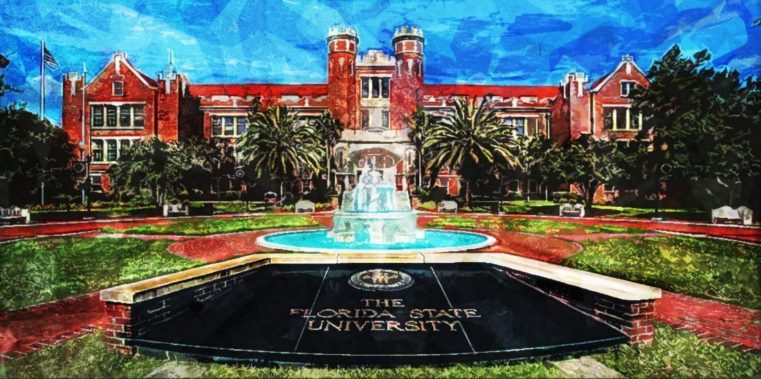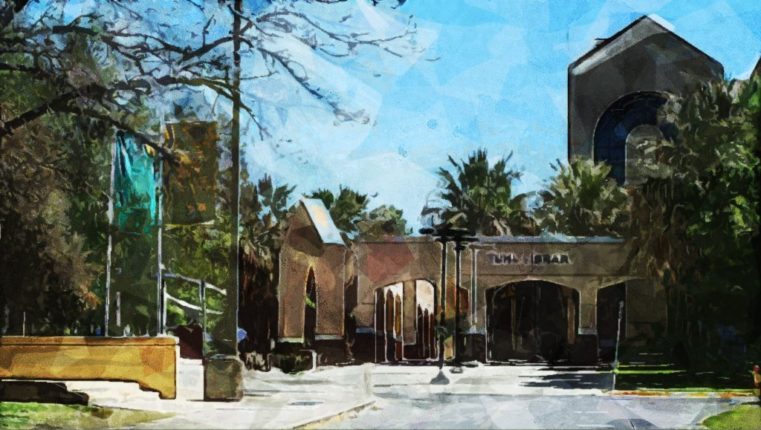Zeeshan Mir Baz has collected the information from this website:https://www.collegechoice.net/rankings/best-information-technology-degrees/ in this article said that:
“Have you tried restarting it?” If you’re computer savvy and
your friends and family know it, chances are good you’ve had to ask them
this question from time to time.
But you’ll also know that things are way more complicated than just
crossing your fingers and hoping the restart works—so complicated, in
fact, that there is an entire professional field dedicated to
understanding, managing, and helping others use computers and
information systems.
If you’re interested in this growing field, you can expect plenty of opportunities, including getting one of the
best online information technology degrees at a top-ranked school.
Computer
and information technology is expected to grow at double-digit rates in
the years ahead as cloud computing, big data, mobile computing, and
computer networks all expand at a rapid pace.
The best way to get
into this field is with a bachelor’s degree in information technology or
a related field. Median earnings for entry-level information
technologists can range from $60-70,000, but you’re going to need a
degree to get there. And that’s where we come in.
What Are the Best Bachelor’s Degrees in Information Technology?
We’ve
compiled a list of the top 35 bachelor’s degrees in the field with your
needs in mind. The first thing we want to know, like you, is the bottom
line:
how much is this going to set me back? So we’ve included the annual tuition for each school right up front for you.
We’ve
also included our College Choice Score, which is computed based on each
school’s reputation in the field and its return on investment. The end
result is a list of schools that balance cost, reputation, and,
ultimately, what they can do for you and your unique goals. You can’t go
wrong with any of them, of course, but these schools are leading the
way.
The rankings you’re about to read are based on a few
important sources. The first source is actual college freshman polled
during a nationwide survey published by the
Higher Education Research Institute at UCLA.
These
students rated academic reputation, financial aid offerings, overall
cost of school, and the survey also took into account graduate success
rates ono the post-college job market. These factors were weighed
equally alongside data from other publicly available sources, including
U.S. News & World Report, the National Center for Education
Statistics, and
PayScale.com.
1
Rensselaer Polytechnic Institute
College Choice Score: 100
Average Tuition: $50,797
Rensselaer
Polytechnic Institute, located in Troy, New York, is committed to
bringing the application of science to the common areas of life. Founded
in 1824, RPI is known as the oldest technological university in the
English-speaking world. Rensselear’s IT programs, including the Bachelor
of Science in Information Technology and Web Science, cover topics such
as trust, privacy, and future Web development. Students in the BS
program are required to complete several core courses in the development
and management of information technology. More than 20 concentration
options are available, including areas like arts, medicine, and
artificial intelligence. The degree requires 128-130 credit hours,
including ITWS core courses, concentration courses, and university-wide
course requirements. In addition to growing in knowledge of various
types of technology, students in the program develop creativity,
problem-solving skills, communication abilities, leadership, and
teamwork skills. Rensselaer also offers a variety of extracurricular
opportunities for undergraduate students, including research experience
and involvement in Science Ambassadors or the Gamma Nu Eta honor
society. Students can pair their IT degree with another field of study
to form a dual major. The most common degrees completed in conjunction
with the ITWS program are Management and Computer Science, both of which
can be completed as a dual degree in four years.
College Choice Score: 99.98
Average Tuition: $50,953
Cornell,
an Ivy League university located in Ithaca, New York, was founded with
the intention of providing educational options in all fields of study.
Today the university offers degrees in more than 100 fields of study.
One of Cornell’s newest and fastest growing areas is the Faculty of
Computing and Information Science, which offers several options for
undergraduate degrees in Information Science. Students can earn a
Bachelor of Arts in Information Science through the College of Arts
& Sciences, a Bachelor of Science in Information Science through the
College of Agriculture & Life Sciences, or a Bachelor of Science in
Information Science Systems and Technology through the College of
Engineering. Each of these degree options has its own admission and
completion requirements. The most distinct of the three options is the
College of Engineering’s BS-ISST degree, which focuses on the
intersection of information science, technology, and management,
offering specializations in Management Science and Information Science.
The BA and BS in Information Science challenge students to apply
information technology to a social context. Students in these degree
programs choose a primary and a secondary track to further customize
their educational experience. Track options include Human-Centered
Systems, Information Systems, and Social Systems.
College Choice Score: 99.44
Average Tuition: $48,320
Founded
by businessman Asa Packer, Lehigh University is a private institution
in Bethlehem, Pennsylvania. The university’s 7,000 students form a
curious and creative research culture. Lehigh’s P.C. Rossin College of
Engineering and Applied Science offers several study options in
Information and Communication Technologies. Undergraduate students can
complete a Bachelor of Science or Bachelor of Arts degree in such areas
as Computer Science, Computer Engineering, and Computer Science &
Business. These degrees emphasize math, computing, and physics, and
design in order to instill skills necessary for a range of careers in
information technology. Research opportunities are available for IT
undergraduates at Lehigh, allowing curious and ambitious students to
complete projects such as establishing multi-tier network models to
bring technological services to underserved regions, or developing
systems that can help police search for concealed weapons. Specific
research focus areas include artificial intelligence and robotics,
computer engineering, bioinformatics, databases and information systems,
networking and security, web systems, and computer vision and pattern
recognition. The college includes several laboratories and institutes
that perform ongoing research in their respective focus areas. The
technology and computer science degree programs offered at Lehigh are
designed to prepare students to adapt and contribute to a constantly
evolving discipline.
4
Purdue University-Main Campus
College Choice Score: 98.72
Average Tuition: $28,804
Purdue
University, located in West Lafayette, Indiana, enrolls around 30,000
undergraduate students in more than 200 majors. Through the Purdue
Polytechnic Institute, undergraduates can pursue a degree in Computer
and Information Technology. With team-based labs and research
opportunities alongside experienced professors, the Purdue IT program
nurtures a culture of innovation, critical thinking, and creativity. The
Bachelor of Science degree in Computer and Information Technology can
be further focused by way of a concentration in Network Engineering
Technology or Systems Analysis and Design. The Network Engineering
Technology concentration provides a thorough background in hardware and
software as well as problem-solving within the field of networking. The
Systems Analysis and Design concentration combines business practices
with technological knowledge. Students in this concentration track are
encouraged to minor in another field such as finance, agriculture, or
healthcare to further prepare them for the specific industry in which
they hope to work. The degree requires the completion of 120 credit
hours, regardless of concentration. The degree is designed to be
completed in four years, with students taking 15 credit hours each
semester. In addition to major courses, the degree program requires
courses in areas such as communications, accounting, economics,
statistics, professional writing, and professional speaking.
5
Brigham Young University-Provo
College Choice Score: 97.08
Average Tuition: $5,000
Located
in Provost, Utah, Brigham Young University is a private research
institution operated by the Church of Jesus Christ of Latter-day Saints.
BYU’s Ira A. Fulton College of Engineering and Technology seeks to
develop men and women of faith, character, and technical ability,
preparing them to be leaders throughout the world. The Fulton College’s
School of Technology offers various programs of study, including both a
minor and a Bachelor of Science degree in Information Technology. The BS
in Information Technology requires the completion of 77 credit hours,
including courses in areas such as computer programming, physics,
information security, and global leadership, as well as university
requirements in religion, citizenship, writing, and arts. In BYU’s IT
program, theoretical coursework and practical application are combined
to include the three aspects of technological education: knowing,
thinking, and doing. Students in the program are taught to be lifelong
learners, always seeking to understand, adapt to, and take advantage of
new technologies as they become available. In addition to gaining
knowledge and proficiency in computing systems, students are also
trained to understand and communicate with users. The university also
holds its students to high moral and ethical standards, resulting in IT
professionals who are prepared for influential leadership positions.
6
University of Washington-Seattle Campus
College Choice Score: 96.98
Average Tuition: $34,791
The
University of Washington, founded in 1861, is one of the oldest
universities on the West Coast. The university is located in Seattle,
with additional campuses in Tacoma and Bothell. The Information School
at UW harnesses the potential of people and information for positive
change. The School offers a Bachelor of Science degree in Informatics,
which promotes analysis, problem-solving, and creativity. Informatics
students at UW learn to design effective and easy-to-use systems,
analyze information policy, and assure the security of information
systems. Graduates are prepared to make a positive impact wherever they
choose to bring their skills, having been trained in a degree program
that draws not only from computer and information science, but also from
sociology, psychology, design, and information management. Students can
choose a concentration in Data Science, Human-Computer Interaction,
Information Architecture, or Information Assurance and Cybersecurity. An
individually designed concentration option is also available for those
who want to further customize their learning experience. In addition to
required courses such as Computer Programming, Design Thinking, and
Information Ethics and Policy, UW’s Informatics curriculum also includes
a capstone project and internship opportunities, allowing students to
gain practice in the field and begin making a difference even before
graduation.
7
Illinois Institute of Technology
College Choice Score: 96.85
Average Tuition: $45,214
Illinois
Institute of Technology is a private research institution located in
Chicago, with additional suburban campuses and online degree options.
The School of Applied Technology at Illinois Institute of Technology
combines hands-on practice in specialized fields with principles of
management to prepare students for a competitive place in the global
market. All students in the school put together a professional project
portfolio to show future employers the problem-solving, leadership, and
communication skills they developed at IIT. The Bachelor of Information
Technology and Management offered at IIT incorporates mentored
project-based learning, allowing students the opportunity to make
presentations in class and at professional events. Students have the
option of completing a general degree or specializing in one of seven
concentration areas, such as Data Management, Networking and
Communications, or IT Entrepreneurship and Management. The program’s
courses are available during the day or evening in Chicago, at the
Wheaton campus, or online. Students interested in completing a graduate
degree can also pursue a master’s degree along with the undergraduate
degree, earning both in as little as five years. Graduates of the
program go on to work in fields such as application development, systems
security, quality assurance and testing, and intelligent device
development.
8
New Jersey Institute of Technology
College Choice Score: 96.51
Average Tuition: $30,326
The
New Jersey Institute of Technology is a public research university in
Newark, currently offering around 50 undergraduate majors in addition to
its graduate programs. NJIT’s Yung Wu College of Computing offers a
Bachelor of Science in Information Technology. The program takes an
interdisciplinary approach, allowing students to choose a degree
specialization and apply their knowledge of hardware and software to a
specific field. The IT core includes 10 courses, while 12 courses are
required for a specialization in areas like criminal justice, gaming,
systems integration, and architectural design. Experiential learning is
an essential part of the degree program, as students have the
opportunity to complete capstone projects and participate in co-ops,
internships, and university-wide research. Students in the undergraduate
IT program can also choose to double major in Applied Math or Applied
Physics. IT students may complete these additional majors and still
graduate within four years. The university has several IT labs,
including the IT Systems Administration Lab, the Center for Information
Protection and Cybersecurity Lab, and the Game Development Lab. Several
support centers and professional networks form part of the NJIT
community. One such center is the Murray Center for Women in Technology,
which connects women students and faculty and provides the resources
they need to succeed.
9
Rochester Institute of Technology
College Choice Score: 96.33
Average Tuition: $38,568
Rochester
Institute of Technology is a private university in the Rochester, New
York area. The university enrolls more than 13,000 undergraduate
students in nine academic colleges. RIT has been a pioneer in
technological education for decades, having taught computing since the
early 1970’s and opened the nation’s first software engineering and
information technology programs. The B. Thomas Colisano College of
Computing and Information Sciences at Rochester offers several
undergraduate degrees, including a Bachelor of Science in Computing and
Information Technologies. The CIT degree emphasizes problem-solving and
management skills, making graduates valuable assets for a wide variety
of professional fields. CIT majors can choose a concentration in
Database, Enterprise Administration, Networking and Communications, Web
Administration, or Web Development. Graduates of the Computing and
Information Technologies program work as analysts, administrators, and
developers with companies all across the United States and around the
world. The degree requires two co-op experiences, to be completed
between sophomore and senior year. These paid experiences allow students
to work with industry professionals as they put into action the skills
they learn in the classroom. In addition to IT courses, concentration
courses, and free electives, students also take liberal arts courses,
which provide opportunities for integrative learning.
College Choice Score: 96.18
Average Tuition: $38,796
Founded
in 1894, the University of Tulsa is a private institution historically
affiliated with the Presbyterian Church. With 61 undergraduate programs
and an average class size of 23, TU provides a highly personalized yet
diverse education for all students. The Bachelor of Science of
Information Technology offered by Tulsa’s College of Engineering and
Natural Sciences and Tandy School of Computer Science includes basic
computer science courses during the first two years, instilling
essential skills such as programming, data structures, and computing
ethics. The final two years of the degree program include primarily
courses in mathematics and statistics, economics, a STEM or business
option, and electives. Students often choose to minor or double major in
another area within the Tandy School, such as Computer Simulation and
Gaming or Computer Science. Some general education courses are also
included in the BSIT’s 124 total required credit hours. BSIT students
can choose to be involved in programs like Cyber Corps, the Institute
for Information Security, and Make a Difference Engineering.
Undergraduate IT students are also afforded the opportunity to engage in
research alongside TU professors, who hold the highest possible degree
in their fields. Graduates of the program are prepared to continue in
professional growth and make significant contributions to the field.
College Choice Score: 95.94
Average Tuition: $49,062
New
York University is a private nonprofit university with campuses in
Manhattan, throughout New York City, and around the world. NYU’s Tandon
School of Engineering, originally known as the School of Civil
Engineering and Architecture, was founded in 1854 and in 2014 merged
with the Brooklyn Collegiate and Polytechnic Institute. Tandon’s
Bachelor of Science program in Business and Technology Management trains
students in technology, entrepreneurship, and information management.
Spoken and written presentations are required in every part of the
curriculum, including classroom and internship settings. The program
includes 127 or 128 credit hours in courses related to management,
humanities and social sciences, mathematics, sciences, and electives.
Students can choose a degree concentration in Technology Innovation
Strategy or Technology and Innovation in Finance. The number of credit
hours taken at any given time can vary, but students typically complete
14-18 credits each semester, choosing from such courses as Philosophy of
Technology, The Phenomenon of Life, Creativity and Innovation, Digital
Humanities, and Science Fiction for Innovation. Those with at least a
3.6 GPA in management courses can choose to complete an honors capstone
thesis. Graduates of NYU’s BTM program can transition into professional
roles such as IT analysts, venture capitalists, technology
entrepreneurs, technology project leaders, and more.
12
San Diego State University
College Choice Score: 94.04
Average Tuition: $18,244
San
Diego State University, founded in 1897 as San Diego Normal School, is
the third-oldest university in the California State University system.
Within San Diego’s College of Business Administration, undergraduate
students can major in Information Systems. Students in the program learn
to provide, access, and interpret information that is essential to
decision-making. Problem-solving is heavily emphasized in this program,
as a job as a systems analyst often requires designing and implementing
solutions to various kinds of technological problems. In addition to
information technology and systems, courses in the major focus on
finance, marketing, and management, as well as various elective choices.
Outside of class, students can get involved in student and professional
organizations such as business fraternities, the Association of
Information Technology Professionals, and the American Production and
Inventory Control Society. Graduate of the Information Systems
undergraduate program often go on to work as systems analysts, web
developers, programmers, network administrators, computer center
managers, and technical marketing specialists in large businesses,
government agencies, universities, and more. A minor in Information
Systems, consisting of a minimum of 18 credit hours, is also available.
To fulfill major or minor requirements, students choose from such
courses as Business Applications Programming, Data Management Systems,
and Networks and Data Communications.
College Choice Score: 92.95
Average Tuition: $42,006
Founded
in 1845, Baylor University is the oldest continuously-operating
university in the state of Texas and one of the world’s largest Baptist
universities. Baylor offers 142 undergraduate programs, as well as
doctoral and master’s degree programs. Baylor’s Information Systems
department forms part of the Hankamer School of Business, offering
undergraduate and advanced degrees in Management Information Systems.
The BBA degree in MIS incorporates business processes and information
technology solutions to equip students to meet the needs of various
types of businesses. The degree program consists of 48 hours of business
core courses and 18 hours of courses in Information Systems, covering
areas such as programming, systems analysis and design, cyber security,
database, and IT project management. The university provides specific
resources and opportunities to students in the MIS program. Students can
take advantage of career panels, attend a career development dinner,
get involved in the Association for Information Technology
Professionals, apply to be a wi-fi coach at Baylor football games, and
even enjoy a final party at the end of each semester. An internship
program is also available, allowing MIS students to earn course credit
while getting paid, gaining field experience, and developing essential
skills for their future careers in business and information technology.
14
The University of Texas at Dallas
College Choice Score: 92.82
Average Tuition: $33,654
The
University of Texas at Dallas is a public university, originally
founded in 1961 as a research arm of Texas Instruments. Today UT Dallas
offers programs of study in eight different schools. The Naveen Jindal
School of Management includes a Bachelor of Science program in
Information Technology and Systems, which consists of 120 credit hours
in STEM and business courses. Throughout the program, students gain the
skills they need to be able to solve business problems and create new
opportunities through technology. There are currently around 540
students enrolled in the program, about 30 of whom are pursuing double
majors. ITS students are trained in areas such as database management,
business intelligence and data mining, and information systems strategy
and management. Graduates of the UT Dallas ITS program have been
recruited by such companies as CVS, Disney, Ban of America, PepsiCo, and
Verizon for both internships and full-time jobs. UT Dallas provides
ample opportunity for ITS students to get involved outside of class,
including groups such as the Intelligence and Analytics Society, the MIS
Club, the ITM Student Leadership Council, and the AIS Student Chapter.
The ITS degree program also allows for study abroad opportunities,
including exchange programs, international internships, Global
Experience Courses, and more.
15
University of San Francisco
College Choice Score: 92.44
Average Tuition: $44,494
The
University of San Francisco, a Jesuit Catholic institution, is located
on San Francisco’s Lone Mountain and enrolls more than 11,000 students.
Within San Francisco’s three undergraduate schools, there are 44 majors
and 46 minors to choose from. The College of Arts and Sciences at USF
offers an undergraduate major and minor in Computer Science. These
programs emphasize software development, especially through
project-based learning. Students learn in the context of a collaborative
community, with supportive faculty and tutors available throughout the
day. Above all, the program challenges students to discover how computer
science and technology can help others both now and in the future. The
program’s basic curriculum includes a capstone project, which allows
students to work with tech companies in Silicon Valley or with an
academic organization. These projects help students learn, gain valuable
experience, and make connections in the field, as they work with tech
professionals for 12-20 hours a week for 15 weeks. Required courses to
complete the degree include 20 lower division units, 20 upper division
units, and 12 units of mathematics. Students take upper division courses
in the Systems Area, Theory and Languages Area, and Applications Area,
as well as completing a senior team project.
College Choice Score: 92.42
Average Tuition: $37,626
DePaul
University, founded by Vincentians in 1898, is now the largest Catholic
university by enrollment in the United States. The university has its
two main campuses in Chicago and enrolls around 16,000 undergraduate
students and more than 7,000 graduate students. More than 130
undergraduate majors are offered, including a Bachelor of Science degree
program in Information Technology. In addition to providing a technical
background, DePaul’s IT program also gives students a firm foundation
in business and technical communication. The College of Computing and
Digital Media, located in the technology and business district of
Chicago, offers various options of study, such as a degree completion
program allowing students to take third and fourth year courses entirely
online. Students also choose between standard and web development
tracks and can complete the bachelor’s and master’s degrees within five
years. The program includes courses in Web Development, Technical
Writing, Marketing, and Accounting, as well as other software,
information systems, and programming courses. Students can take
advantage of an even more challenging and engaging curriculum by joining
DePaul’s honors program, which allows for independent research
opportunities as well as smaller class sizes. A variety of study abroad
options are also available for students in the undergraduate Information
Technology program.
College Choice Score: 91.73
Average Tuition: $25,994
Temple
is a public university enrolling nearly 40,000 undergraduate and
graduate students in more than 400 degree programs. Temple’s main campus
is in Philadelphia, but the university has eight additional locations,
including sites in Rome and Tokyo. Among undergraduate academic majors
are two programs of study in Information Science and Technology. Within
this field students choose to pursue a Bachelor of Arts or Bachelor of
Science degree. Both programs focus on analytical skills,
problem-solving, and communication, providing students with a background
in areas like network security, project management, and quality
assurance methodologies. Graduates generally work in business,
education, science, and government agencies, serving as network
engineers, database administrators, web and application developers, and
more. Both the Bachelor of Arts and Bachelor of Science degrees require a
total of 123 credit hours of general education, mathematics, major
courses, and electives. The BS program, however, allows students to
choose from a greater variety of elective courses. A five-year combined
program is also available, allowing students to earn both a Bachelor of
Science and Master of Science degree in Information Science and
Technology. The College of Science and Technology also offers several
interdisciplinary majors, which combine Computer and Information Science
with other fields of study.
18
Florida State University
College Choice Score: 91.67
Average Tuition: $21,673
Founded
in Tallahassee in 1851, Florida State University is a senior member of
the State University System of Florida and sits on the state’s oldest
continuous site of higher education. FSU’s College of Communication and
Information offers a Bachelor of Science degree in Information
Technology. The IT major emphasizes teamwork, communication, critical
thinking, and problem solving, in addition to technical knowledge. The
program thus prepares IT students to be able to assess the information
needs of an organization, then design and implement systems to meet
those needs. The major requires the completion of 120 credit hours,
including 36 hours of Liberal Studies courses, 24 hours of
prerequisites, 42 hours of major courses, and courses in Computer Skills
and Oral Competency. The College of Communication and Information
boasts a strong sense of community and mutual support, achieved through
involvement in various student organizations. Research institutes like
the Information Institute and the Institute for Digital Information and
Scientific Communication also enrich the educational experience of IT
students at FSU. The university has a number of partnerships with
businesses and non-profit organizations in the area, allowing students
to work, learn, serve, and explore a variety of work environments during
their time at FSU.
19
Texas Christian University
College Choice Score: 91.64
Average Tuition: $42,670
Founded
in Fort Worth in 1873, Texas Christian University is a private
institution affiliated with the Disciples of Christ. TCU consists of
eight colleges and schools, whose programs are based on a classical
liberal arts curriculum. The Department of Computer Science in TCU’s
College of Science and Engineering offers a Bachelor of Science degree
in Computer Information Technology. The program consists, in part, of
courses in database administration, project management, system and
network administration, and interface design and scripting. A total of
124 credit hours are required to complete the degree, including 42 hours
of upper division courses. The curriculum includes an abundance of
elective courses, allowing students to take full advantage of the
program by personalizing their academic experience. Graduates completing
the program are equipped with written and verbal communication skills
and hands-on computer technology practice, as well as a traditional
college education. Computing and research laboratories are available 24
hours a day to students enrolled in the Computer Information Technology
program. Certain software tools are also provided for undergraduate CITe
students. The Computer Science department at TCU sponsors such student
organizations as the Association of Computing Machinery, the Computer
Science Society, and the Upsilon Pi Epsilon honors society for Computing
Sciences.
20
University of South Florida-Main Campus
College Choice Score: 91.48
Average Tuition: $17,325
The
University of South Florida, located in Tampa, enrolls around 48,000
students and is the fourth-largest public university in the state. More
than 80 undergraduate majors and 130 graduate programs are available
through USF’s 14 colleges. The College of Engineering offers a Bachelor
of Science degree in Information Technology, as well as an undergraduate
minor and a master’s degree. All of USF’s undergraduate IT courses are
available online, including concentration courses in areas like web
design, system administration, networking, and information security. The
IT major at USF requires the completion of 120 credit hours, including
courses such as IT Ethics, Communication for Engineers, and Introduction
to Psychological Science. A minimum of 15 credit elective hours within
the IT field also form part of the program’s curriculum. USF’s IT
program trains students to be able to work in multi-disciplinary
contexts, recognize and exercise their ethical responsibilities, apply
technological knowledge to solve business problems. Students in the BSIT
program are able to perform research alongside faculty and graduate
students and participate in internships in a variety of industries and
government agencies. Some basic computing and mathematics courses must
be completed before entering the university, or before graduation from
the Information Technology program.
College Choice Score: 91.08
Average Tuition: $46,362
The
University of Denver, founded in 1864, is the oldest independent
private university in the Rocky Mountain region. The Daniels College of
Business at the University of Denver offers a Bachelor of Science in
Business Administration degree with a major in Business Information and
Analytics. This program joins statistical principles and theories,
information systems, and practical applications to provide a challenging
and enriching educational experience. Through internships and capstone
projects, students put this interdisciplinary degree into practice,
using their expertise in analytics and information technology to help
businesses and organizations make decisions and solve problems. The
degree’s analytics focus teaches students to find meaning, explain
causation, and make predictions by using data. DU offers its business
students online and on-campus career services and resources, such as
resume help, interviews, and city treks. Denver’s Daniels College of
Business hosts events such as the Ethics Boot Camp and provides valuable
services and opportunities through the Professional Development
Program, Peer to Peer Mentor Program, and Honors Program. Students in
the Daniels Distinction Honors Program form small, intense classes and
engage in a diverse and creative community. IT students in Denver’s
business college also have the option to participate in study abroad
trips, including short-term faculty-led programs and the longer-term
Cherrington Global Scholars Program.
22
Montclair State University
College Choice Score: 90.29
Average Tuition: $20,318
Montclair
State University, located in Clifton, New Jersey, is the state’s second
largest university. More than 20,000 students come from all over the
United States and several other countries to study in one of Montclair’s
250 degree programs. The university offers a Bachelor of Science degree
in Information Technology, which requires a minimum of 120 credit hours
in major core courses, electives, and additional required math courses.
The undergraduate programs within Montclair’s Computer Science
department seek to prepare students to solve technological problems and
improve the world around them by designing and implementing software,
engaging in research, and learning to adapt to new ideas and processes.
In addition to focused and rigorous coursework, the department
accomplishes these goals by offering internships, cooperative education
opportunities, and volunteer experiences. Other extracurricular
opportunities include a computing club and a chapter of Upsilon Pi
Epsilon, the national computer science honors society. Graduates of
Montclair’s undergraduate IT program are prepared to enter careers in
areas like networking and software development, or to pursue advanced
degrees in technological fields. Those who wish to complete an
accelerated program can choose to earn a Bachelor of Science and Master
of Science in Computer Science concurrently within five years.
23
Loyola University Chicago
College Choice Score: 90.28
Average Tuition: $41,384
Founded
by Jesuits in 1870, Loyola University Chicago is one of the largest
Catholic universities in the United States. Loyola’s eleven colleges and
schools include more than 80 undergraduate and 140 graduate programs.
The university’s Department of Computer Science features courses taught
by experienced faculty, technology labs, flexible schedules, and a
challenging curriculum that emphasizes the development of independent
and critical thinking skills. Loyola’s computer science programs
especially benefit from the Jesuit emphasis on lifelong learning, as
professionals in this field must continually adapt to technological
advances. Loyola’s Bachelor of Science in Information Technology equips
students to design, create, and manage information systems used by a
variety of organizations. The BSIT curriculum at Loyola includes 48
credit hours of major courses, as well as electives and a practicum
capstone. The computer science department rewards high-achieving
students in the program with recognitions such as the Dijkstra Award for
Outstanding Academic Achievement, the Grace Murray Hopper Service and
Leadership Award, and 50 for the Future, an award given by the Illinois
Technology Foundation. Tutoring services are available throughout the
day for computer science and information technology classes. Several
financial aid options are available to information technology students,
including the SMART Grant program, which can provide additional support
to Pell Grant recipients.
24
New Mexico State University-Main Campus
College Choice Score: 90.22
Average Tuition: $21,234
New
Mexico State University, located in Las Cruces, was founded in 1888 and
is the oldest public university in New Mexico. With a total of more
than 18,000 students, NMSU is also the state’s second largest four-year
university. In all of its academic programs, New Mexico State boasts a
culture of discovery, emphasizing hands-on practice through on- and
off-campus research. NMSU’s Department of Engineering Technology and
Surveying Engineering offers several undergraduate degrees, including a
Bachelor of Science in Information Engineering Technology. The IET
degree is earned by completing 129 total credit hours over a four-year
period. This curriculum includes technical electives in areas like
manufacturing, digital applications, and renewable energy technologies,
as well as courses specific to information technology. New Mexico State
seeks to produce Information Engineering Technology graduates who become
a vital part of the organizations where they work, continue their
professional training beyond the undergraduate program, and fulfill
their ethical and societal responsibilities. These goals are achieved in
part by providing rigorous coursework and in part by offering the
option to get involved in student organizations such as the Association
of Information Technology Professionals and the American Indian Science
and Engineering Society. An online degree completion program in
Information and Communications Technology is also available at NMSU.
25
California State University-Fresno
College Choice Score: 90.02
Average Tuition: $17,209
California
State University Fresno, one of the 23 campuses of the California State
University system, enrolls around 23,000 students in bachelor’s,
master’s, doctoral, and certificate programs. Fresno State’s Department
of Information Systems and Decision Sciences, part of the Craig School
of Business, offers a Computer Information Systems option within the
Bachelor of Science in Business Administration program. Students
pursuing this option must take general education courses, business core
courses, and specialized courses in Computer Information Systems. The
Craig School includes an internship program, which allows students in
the business school to learn and grow in a professional setting. The
school also hosts on-campus interviews, assists students with résumé and
interview preparation, and helps make connections for students looking
for full- or part-time jobs. Business students specializing in Computer
Information Systems have the unique opportunity to attend conferences on
database and security, held twice a year in San Francisco. Fresno
State’s Computer Information Systems specialization prepares students to
hold such positions as application developer, technical developer, and
systems support personnel. Students also have the option to earn the
Certificate in Business Information Systems or the Certificate in
Network Administration as a way to enhance their knowledge and expand
their technical expertise.
26
University of Missouri-Kansas City
College Choice Score: 89.94
Average Tuition: $22,714
The
University of Missouri Kansas City, founded in 1933, is a public
university historically associated with the Methodist Church. UMKC’s
School of Computing and Engineering offers several Bachelor’s degree
programs, including a Bachelor’s of Information Technology. The BIT
program at UMKC blends technical knowledge with the management and
people skills gained through business courses and internship
experiences. Since some of the largest firms are located in Kansas City,
students have a great variety of companies to choose from when
searching for internships or for a job after graduation. In addition to
the required courses that all BIT majors take, there are also abundant
elective options, including courses like Cryptology, Software Design
with Mobile Devices, Practical Network Analysis, and Network Security.
At UMKC, there are more than 20 teams and organizations run by and for
computing and engineering students. These groups work on projects like
building robots or solving algorithmic programming problems as they
build relationships and benefit from networking opportunities. The
university also celebrates Engineers Week every year in February as a
means of outreach to both children and adults. Interested, motivated,
and qualified BIT students can join honors societies, which provide
service opportunities as well as potential mentoring and leadership
training.
27
University of Central Florida
College Choice Score: 89.67
Average Tuition: $22,467
The
University of Central Florida is a public research university in
Orlando. With more than 63,000 total students, UCF is the largest
university in the United States by enrollment. Innovation and creativity
are the cornerstones of UCF’s College of Engineering and Computer
Science. Among the degrees offered by the college is a Bachelor of
Science in Information Technology. The degree requires 120 total credit
hours, including common core courses, program prerequisites, and
electives. IT students at Central Florida have the opportunity to join
the university’s Programming Team, which is one of the best in the
world. Prestigious research programs offer paid and unpaid research
options to UCF students. Those interested in becoming more involved on
campus can consider joining the student chapter of the Association for
Computing Machinery, the IEEE Computer Society, or the UPE Computer
Science Honor Society, all of which open doors to valuable networking
and career experiences. The college is located in the Harris Corp.
Engineering Center, a high-tech building that features quality
equipment, labs, and computers for students. UCF offers internship
opportunities specifically for undergraduate Information Technology
students. These paid internships, which provide valuable professional
experience, generally last one semester, with students working 10-15
hours per week.
28
California State University-Fullerton
College Choice Score: 89.53
Average Tuition: $17,596
California
State University, Fullerton is the second largest CSU campus by
enrollment, with a total of nearly 39,000 students. More than 240
undergraduate and advanced degrees are available at the university.
Fullerton’s Mihaylo College of Business and Economics offers a
concentration in Information Systems within its Bachelor of Arts in
Business Administration program. Through courses in Information Systems
and Decision Sciences as well as courses covering a variety of business
subjects, Cal State Fullerton prepares students to strategically
maintain and manage data and systems, such as Accounting Information
Systems, Marketing Information Systems, or Financial Information
Systems. Graduates work at both the functional and corporate levels,
often in general management positions. Some graduates have become
telecommunications specialists, systems analysts, webmasters, IS
directors, software developers, and network administrators. Cal State
Fullerton’s concentration in Information Systems, while preparing
students to begin a career in the field immediately after graduation,
also provides lifelong skills needed to keep up with technological
advances over a long-term period. Students in the IS concentration learn
by both theory and practice, as they are offered opportunities to
collaborate in a group to solve local companies’ information systems
needs. Students can also make the most of their time outside of class by
getting involved in organizations like the Student Association of
Information Technology Professionals.
29
East Carolina University
College Choice Score: 88.56
Average Tuition: $22,904
East
Carolina University, located in the city of Greenville, enrolls more
than 28,000 students and is the largest university in North Carolina.
Several undergraduate majors are available through ECU’s College of
Engineering and Technology, one of which is the Bachelor of Science in
Information and Computer Technology. The degree equips students with
theoretical and practical knowledge in design, implementation, security
and troubleshooting of computer systems. Within the BS in Information
and Computer Technology, students can choose to concentrate in
Networking, Security, or Information Technology. Graduates of the
program are prepared to work in organizations of any size, having gained
hands-on experience through internships, cooperative learning, capstone
projects, and laboratory research. Short- and long-term work
opportunities may be available with companies such as Honeywell, IBM,
Cisco Systems, and Verizon. The program consists of a total of 126
credit hours in courses ranging from Humanities and Fine Arts to Health
to PC Hardware. Some scholarships may be available to undergraduate ICT
students through the university as well as the Department of Technology
Systems. ECU has a deadline in March for first-year students applying to
enroll in the fall semester. East Carolina also has an online Bachelor
of Science degree completion program for technology students who have
completed an Associate in Applied Science degree.
30
Central Michigan University
College Choice Score: 88.02
Average Tuition: $23,670
Central
Michigan University, one of the largest universities in the state,
enrolls more than 20,000 students at its Mount Pleasant campus, as well
as an addition 7,000 online and at other CMU sites. The College of
Science and Engineering at Central Michigan offers a variety of
undergraduate degree programs within the Department of Computer Science.
Students pursuing an Information Technology degree can choose to follow
a Bachelor of Arts or Bachelor of Science track. The IT major requires a
total of 124 credit hours, including an internship and capstone
project, which can be completed on or off campus. Within the major
students must choose a specialized track in Data Communication and
Networking, Database, Interactive Multimedia Design, Web Application
Development, or an individualized custom track. Graduates of both the
Bachelor of Arts and Bachelor of Science programs at CMU often become
applications programmers, computer communications specialists,
consultants, and database managers. CMU boasts specialized labs and a
history of having offered the first information technology major in the
state. The university’s Software Engineering and Information Technology
Institute affords students special opportunities, such as working on
international coding and development projects for internship and
independent study credit alongside sites in Japan and Korea.
College Choice Score: 88.01
Average Tuition: $29,756
Lipscomb
is a private, liberal arts university affiliated with the Churches of
Christ. The university is located in Nashville and enrolls around 4,600
students. Lipscomb’s College of Computing and Technology seeks to
advance student knowledge while also contributing to the welfare of
society. Several multi-disciplinary programs are available, preparing
students for a wide variety of career paths. These program options
include Bachelor of Science degrees in Information Technology and
Information Technology Management. While these two degree programs
differ slightly, they both include university-wide requirements, such as
basic Bible classes and General Education courses, as well as electives
and an internship requirement. Students in Lipscomb’s IT major learn to
design, create, utilize, and manage computer-based information systems,
including software applications and computer hardware. Throughout the
program students evaluate computing and information technologies,
discover the impact information technologies have on individuals and
organizations, develop important business and managerial knowledge, and
practice problem-solving within the IT field. A total of 126-128 credit
hours are required for completion of the Bachelor of Science in
Information Technology. Students can choose to pursue a minor along with
the degree, and a general business minor is automatically satisfied by
the course requirements for the Information Technology major.
32
Florida International University
College Choice Score: 87.96
Average Tuition: $18,954
Florida
International University, part of the State University System of
Florida, is a public research institution located in the Miami area.
With around 55,000 students, FIU is the second largest university in the
state of Florida. A Bachelor of Science in Information Technology is
available at Florida International through its School of Computing and
Information Sciences. In addition to core major courses and
prerequisites like Programming in Java and Introduction to Psychology,
the degree program requires nine interdisciplinary credits to be taken
outside of the School of Computing and Information Science. Fifteen
credit hours of major electives are also required, and can be chosen
from among courses in Database Administration, Application Development,
System Administration, and Network Administration. The degree requires a
minimum of 120 total credit hours. Students interested in earning a
master’s degree can pursue a Bachelor of Science in Information
Technology combined with a Master of Science in Engineering Management,
allowing them to complete both degrees on an accelerated schedule.
Students entering with a bachelor’s degree or pursuing a bachelor’s
degree at Florida International can choose as a second major the
Bachelor of Arts program in Information Technology. To major in
Information Technology and also gain a strong foundation in computer
science theory, students can choose the IT Software track.
33
Florida Agricultural and Mechanical University
College Choice Score: 87.86
Average Tuition: $17,726
Florida
Agricultural and Mechanical University, located in Tallahassee, is a
public, historically black university originally founded in 1887. FAMU’s
Department of Computer and Information Sciences offers various
undergraduate and graduate degree programs, including a Bachelor of
Science in Information Technology. Through the undergraduate IT program,
students prepare to meet the technological needs of schools,
businesses, government agencies, and other organizations. While studying
at FAMU, IT students gain knowledge of social and ethical issues in the
field, build technical communication skills, and strengthen their
critical thinking. In addition to computing classes, the BS in IT
curriculum requires interdisciplinary courses, such as Public Speaking,
Introduction to Psychology, and Humanities electives. FAMU’s Information
Sciences department is currently integrating C3 Active Learning Spaces,
making classes a more interactive and engaging experience. These
renovations feature flexible seating, multiple flat screen monitors, and
other technological enhancements that encourage collaborative learning
among students. Since FAMU is a member of the Florida Information
Technology Career Alliance, the university’s computer science and IT
graduates benefit from connections with other schools and organizations
that are involved. The FITC Alliance hosts professional development
events, engages in recruitment and outreach efforts, and assists
students in finding internships and jobs while in the program or after
graduation.
College Choice Score: 87.33
Average Tuition: $16,332
Founded
in 1827 in Saint Charles, Missouri, Lindenwood University is a private,
liberal arts university offering undergraduate, graduate, and doctoral
degrees in nine colleges and schools. Lindenwood’s School of Sciences
stresses decision making and critical thinking skills in all of its
undergraduate programs. In the Computer Science department, Lindenwood
offers a Bachelor of Arts in Computer Information Systems. The program
focuses on businesses applications and business oriented computer
methods, and includes accounting, management, and organizational
behavior courses in the degree’s course requirements. IT classes, just
like all classes at Lindenwood, are limited to 30 students each. This
limit, paired with a 16:1 student-to-faculty ratio, gives Lindenwood’s
program a personal and intimate feel. The Computer Science department
requires two years of learning to write and debug programs, and
represent information with data structures. During the second two years,
students focus on larger scale, application oriented software. A senior
capstone course is included in the curriculum, allowing teams of
students to solve a complex real-world problem within the field of
study. Upon completing the Computer Information Systems program,
graduates are able to develop quality computer software and incorporate
their knowledge and skills in the computer science field with a variety
of other disciplines.
College Choice Score: 85.7
Average Tuition: $23,020
Located
in Lynchburg, Virginia, Liberty University is a private, non-profit
university affiliated with the Southern Baptist Conservatives of
Virginia. Liberty’s School of Business offers undergraduate degrees such
as the Bachelor of Science in Information Technology and the Bachelor
of Science in Information Systems. The Information Technology major
includes a residential and an online completion option. IT
specialization options include Application and Database Development,
Data Networking and Security, Gaming Design, and Web and Mobile
Programming. The degree develops an applied knowledge of technology in
the context of business operations. Liberty’s IT program focuses on both
theoretical foundations and actual management of information technology
resources. Students are required to take core courses in areas like
Communication, Critical Thinking, and Information Literacy, as well as
22-23 credit hours in Christian Life and Thought, 57 credit hours within
the major, and optional electives and directed courses, totaling 120
credit hours. Business school students, including those in the
Information Technology program, have the option to participate in the
Leadership Excellence Ambassador Program, which includes areas like the
Student Advisory Committee, Steering Committee, and Alumni Committee.
Investing in programs like LEAP helps students get the most out of their
experience at Liberty, improving interpersonal skills, building
connections with business professionals and community leaders, and
earning Christian service credit.
INFORMATION TECHNOLOGY
Degree Finder
2 3




































Comments
Post a Comment